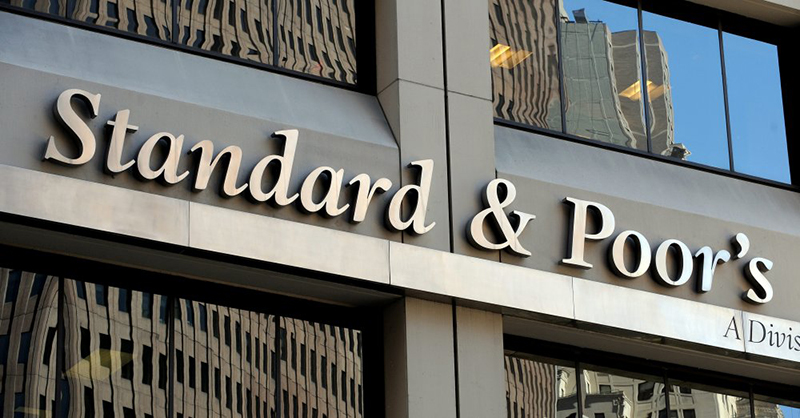U.S. credit rating agency Standard & Poor's (S&P) has revised to positive from stable the outlook on its "BB+/B" sovereign credit ratings on Morocco.
"The positive outlook reflects our expectations that Morocco will build on its recent track record of implementing socioeconomic and budgetary reforms, paving the way for stronger and more inclusive growth, and a reduction in budget deficits," the agency pointed out Friday in a release.
Morocco's economy has proven "resilient" in the face of multiple shocks over the past five years, and maintained access to domestic and external financing, it said.
"We believe that the continued implementation of socioeconomic and budgetary reforms will help formalize the economy further and make it more inclusive and competitive, thereby stimulating GDP growth and bringing down budget deficits, albeit gradually," the agency stressed.
"The budget and current account deficits decreased more than we expected in 2023, to 4.4% and 0.6% of GDP, respectively, and we expect fiscal consolidation to continue," it added.
S&P Global said it could raise ratings on Morocco within the next 12-18 months "if the government continues to implement structural reforms, resulting in stronger economic growth and a broadening of the tax base, while budget deficits continue to decline."
"We believe the ongoing, albeit gradual, shift in Morocco's underlying economic structure will benefit the growth outlook, economic stability, and fiscal trajectory," the agency underlined.
The U.S. rating agency expects Morocco's GDP to rise by 3.4% in 2024, from 3.1% in 2023, bolstered by robust performance within the tourism, automotive, and aerospace sectors, then average 3.7% in 2025-2027.
"Economic growth will be supported by stronger domestic demand helped by declining inflation and greater private investment, which will benefit from the economic reforms underway and stronger growth in the eurozone, Morocco's main trade partner," it added.
The Moroccan economy will also gradually benefit from the development of large-scale projects in view of the Africa Cup of Nations in 2025 and the Football World Cup in 2030, the implementation of socioeconomic reforms, and the expansion of Morocco's export capacity, according to the same source.
The U.S. agency said it expects Morocco's budget deficit to decline to 3% of GDP by 2027.
The Moroccan economy "has weathered several global, regional, and local headwinds in recent years", including the surge in energy and food prices, the COVID-19 pandemic, and multiple drought episodes, the agency noted, adding that the Kingdom's economy has maintained unfettered access to external and domestic financing.
In 2023, the number of tourist arrivals was 12.3% above 2019 pre-pandemic, "a better performance than the global average", despite the earthquake in the Marrakech region in September 2023, it said,
"The current account deficit narrowed to 0.6% of GDP in 2023, against our previous estimate of 2.7%, partly reflecting the continued diversification in the economy," said the agency, which cited several measures undertaken by Morocco, including the implementation of a unified registry to better target households eligible for social support programs as well as the amendment of the Investment Charter.
"In our view, implementing structural reforms and social support programs will limit budget deficits from falling sharply in the near term, however, it will underpin medium- to long-term fiscal consolidation," S&P Global Ratings pointed out.
The agency expects FDI inflows to gradually increase in the coming years, as the implementation of structural economic reforms makes Morocco more attractive to investors, recalling that the country issued its latest eurobond in March 2023 in two tranches: $1.25 billion with a 10-year maturity and a 6.5% coupon, and $1.25 billion with a five-year maturity and a 5.95% coupon.






